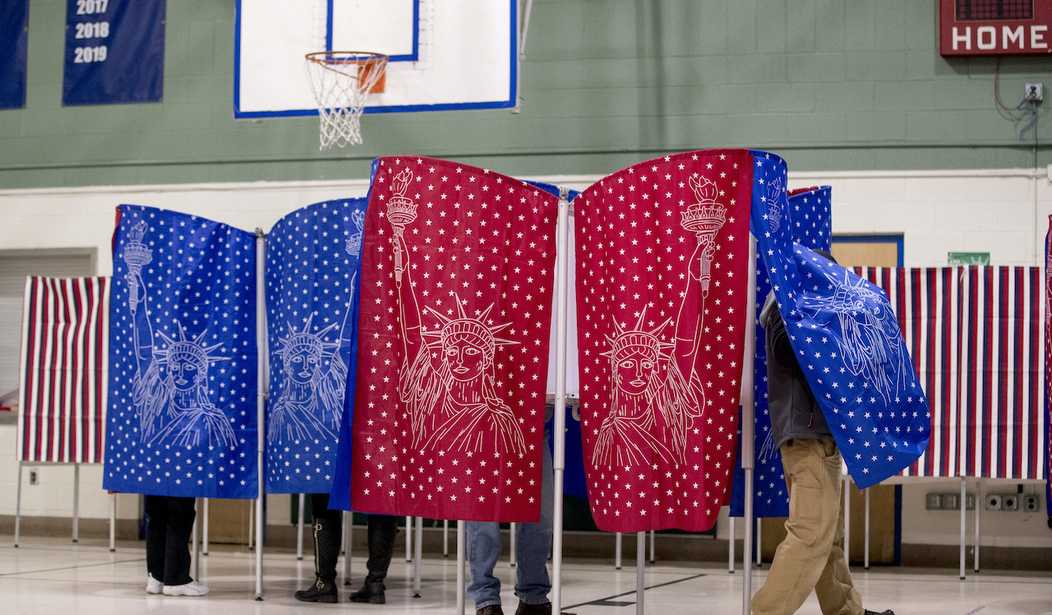As the election train wreck in Maricopa County, Arizona, continues to unfold, Americans are losing confidence in the integrity of our elections. According to a new poll from Convention of States Action, in partnership with The Trafalgar Group, 56.8% of voters don’t fully trust that America’s elections are fair and accurate.
- 17% say they somewhat trust the integrity of our elections
- 17.9% say they somewhat distrust the integrity of our elections
- 21.9% say they strongly distrust the integrity of our elections
Following a consistent trend for the past 12 months, a majority of independents join self-identified Republicans in expressing at least some doubt about our election outcomes. Nearly 90% of Republican voters feel this way, and 57.5% of independents agree.
One of the key drivers in how voters view elections is the time it takes to tabulate them. In 2020 and 2022, it appears that the longer it takes to tabulate results, the more likely Democrats will win. So it is not surprising that 68.1% of Democrats say they trust results that take days or weeks to tabulate. Meanwhile, 80.4% of Republicans report they are less likely to trust delayed results, and 51.6% of independents agree.
For our VIPs: Maricopa County Is Ground Zero in the Fight for Election Integrity
It is easy to imagine these results would have been completely reversed after the “hanging chad” debacle in the 2000 presidential election. When Bush won, prominent Democrats doubted the outcome. Jesse Jackson accused George W. Bush of a coup. Hillary Clinton, who still offers multiple excuses for her loss in 2016, said President Bush was “selected, not elected” at a fundraiser in 2002. She was a senator from New York at the time. And in 2005, Democrats forced a two-hour debate on Ohio voting irregularities during the certification of the Electoral College vote. When a result is delayed and goes against Democrats, they are not quite so confident.
Even when results come in quickly, Democrats will find a reason to reject them if they lose. In April 2022, a Rasmussen poll showed that 72% of Democrats still believed that Russia interfered and changed the outcome of the 2016 election. Twenty percent felt it was very likely. In the same poll leading up to the 2022 election, when conventional wisdom said a red wave was likely, 53% of Democrats felt it was very likely that Russia would interfere in the midterms.
President Joe Biden’s strongest supporters are most certain that Russian interference changed the 2016 election, and to fear future interference. Among voters who Strongly Approve of Biden’s job performance as president, 86% believe it’s at least somewhat likely Russian interference changed the outcome of the 2016 presidential election and 75% think it is Very Likely that Russia will try to interfere in this year’s congressional midterm elections. By contrast, among voters who Strongly Disapprove of Biden’s performance, only 18% think the 2016 election was changed by Russian interference, and just 20% say Russian interference in this year’s midterms is Very Likely.
It seems these concerns have been relieved by a less-than-impressive Republican performance on Nov. 8. Still, election outcomes viewed as legitimate solely through the lens of partisan politics do not lead to stability. And since 2016, elections in the United States have become increasingly contentious. Looking at the results of the latest poll, Mark Meckler, President of the Convention of States, said, “The answer does not lie in Washington, DC. This problem can and must be fixed close to home. State legislatures need to make strengthening election integrity priority number one, and governors need to focus on vigorous enforcement. Until we get the problem under control, this needs to be treated as the state-by-state emergency that it is.”
Following the 2000 election, Florida began to shore up its election process. When Broward County remained a national embarrassment in 2018, newly elected Governor Ron DeSantis took action to fix it. In 2022, Florida results were reported in hours. Likewise, after 2020, states like Texas and Georgia took action to remedy pandemic-related exceptions that led to glaring issues on Election Day 2020. Both states reported results quickly and accurately in 2022.
Until states like Arizona, Pennsylvania, and Michigan take action to make it easy to vote and hard to cheat, the results of future presidential elections will remain contested. And Meckler is correct that the answer is not in Washington, D.C. The elite in both political parties benefit from the division that election insecurity causes just the way they benefit from every wedge issue. Voters must demand secure, accurate, and transparent election processes that provide verifiable results promptly after the polls close.










Join the conversation as a VIP Member